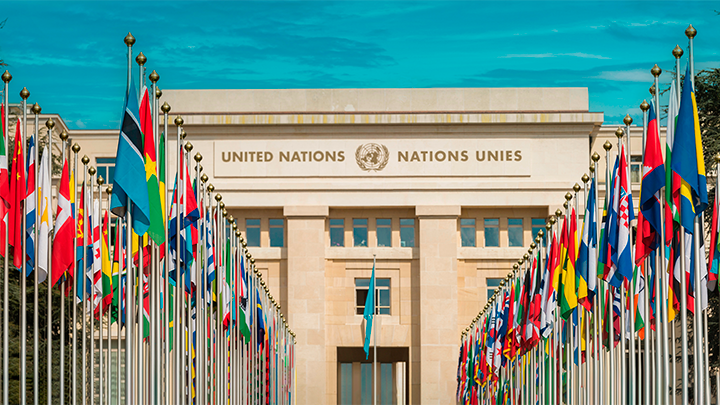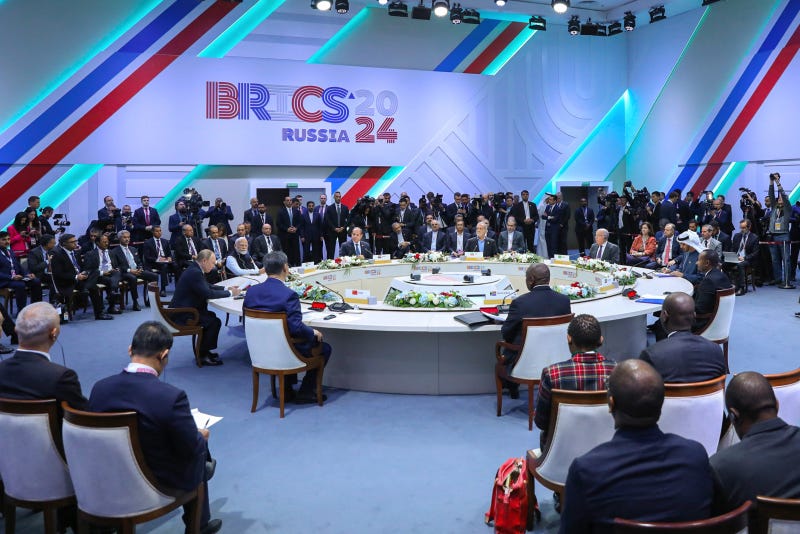Trump and the UN Exit: A New Global Blueprint
The United States wants to leave the UN. Alexander Dugin reveals what will happen next.
The initiative by Republican congressmen for the USA to exit the United Nations is not surprising. The UN has long ceased to correspond to the realities of international politics. It is a phantom pain: the structure of the United Nations reflects the balance of power that emerged after World War Two, in which there were two antagonistic blocks and the Non-Aligned Movement. But it was precisely between these two blocks, capitalist and socialist, that the entire real architecture of world politics unfolded.
After the Soviet Union collapsed, one of the poles was eliminated. From that moment, the UN no longer corresponded to its original function and did not reflect the real balance of power. Americans wanted to build a unipolar model, replacing the UN with a “Forum” or “League of Democracies,” which would cement the unipolarity of the world order, the hegemony of the USA, and those powers that agreed to be its satellites.

Gradually, the unipolar world, which was not anchored in international law, was also largely overcome. As a result, the structure of a multipolar world began to form, finding its expression in the BRICS group. This structure most accurately corresponds to the new rules and norms of international politics. But, of course, it has not yet become a replacement for the UN.
The Trump administration believes that the international field truly needs restructuring. Moreover, also in a multipolar key but not relying on BRICS. This is a completely different, alternative model of multipolarity. But in any case, the US exit from the UN and the cessation of the existence of this organization in the form that it was created after World War Two is inevitable. Sooner or later, it will happen since Trump is conducting quite rapid reforms.

Although without the participation of the West, this project is unlikely to be realized as a full-fledged tool of multipolarity. Especially considering that the European Union continues to hold globalist positions. Therefore, it is most likely that under the current circumstances, the US exit from the UN will put an end to the history of this organization’s existence. Yes, as a rudiment, it may continue to exist for some time, although it is already, in essence, powerless, paralyzed. Although we will most likely insist on its preservation for a long time and persistently. And our position is probably diplomatically correct but hardly likely to yield any result.
The most important thing for us now is to negotiate with America about a new world order. Of course, we should also involve China, India, and other state civilizations in this process of reviewing the global architecture. Only based on this can a new model of international relations and the legal systems that will serve as platforms for their regulation be formed.





I'm relieved to see that Prof. Dugin remembered to include China and India in the new multi-polar world. Ignoring those civilization states, or in any way minimizing their status and roles, would be a grave mistake for multi-polarity. (Though of course it would make matters simpler.)
However besides China and India, no mention of multi-polarity should fail to note Africa, Latin America and South-east Asia as other nodes of the new world order. The numerous states in those regions make up half of humanity. Grouped collectively they too form diverse but cohesive entities with their own regional identities. All of these can reasonably be considered, "civilizations."
The new world order must leave no one behind, or it's not an order worth considering.
I agree professor. The geopolitical landscape has changed and the UN currently does not reflect this. In addition to this fact is the bureaucracy which wastes money due to redundancy and grift. As an American I also resent the fact that representatives of countries hostile to us are treated to diplomatic immunity and use this forum to undermine our sovereignty with so called international law.